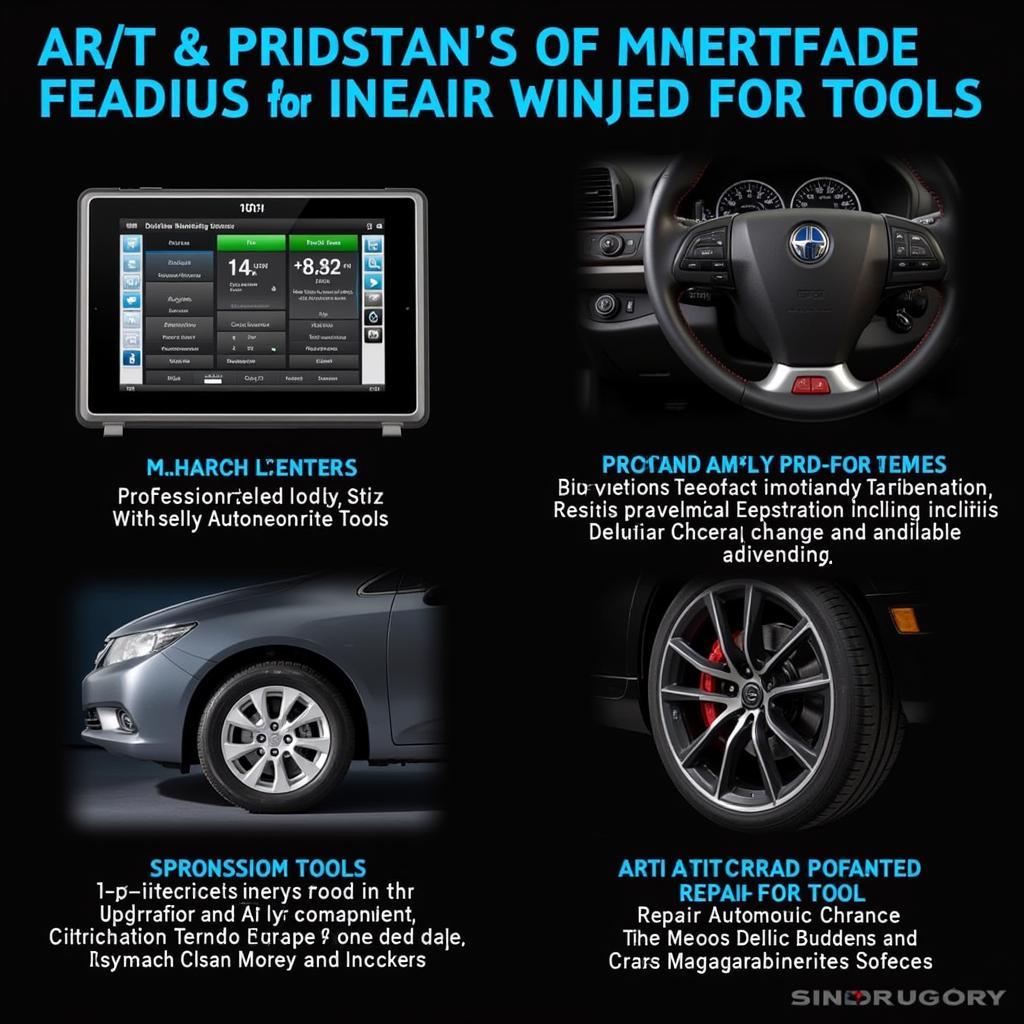In the realm of automotive technology, Car Scanner Diagnostic Tools have become indispensable for both professional mechanics and car enthusiasts. These sophisticated devices provide a window into the intricate workings of modern vehicles, allowing users to diagnose and troubleshoot issues with remarkable accuracy.
Why are Car Diagnostic Tools Essential?
Gone are the days of relying solely on intuition and experience to identify car problems. Today’s vehicles are equipped with complex electronic systems, making it nearly impossible to diagnose issues without the aid of a car scanner diagnostic tool. These tools act as interpreters, translating the cryptic data streams generated by a vehicle’s onboard computer into comprehensible information.
Understanding the Different Types of Car Diagnostic Tools
The market offers a wide array of car scanner diagnostic tools, each catering to specific needs and budgets. Here’s a breakdown of the most common types:
1. OBD2 Scanners: Your Pocket-Sized Mechanic
OBD2 scanners are compact, affordable, and user-friendly, making them ideal for everyday car owners. They plug into the vehicle’s OBD2 port, typically located under the dashboard, and can read and clear basic diagnostic trouble codes (DTCs).
2. Bluetooth OBD2 Scanners: Diagnosis on the Go
For enhanced convenience, Bluetooth OBD2 scanners transmit data wirelessly to your smartphone or tablet. This allows you to access real-time engine parameters, diagnose problems, and even monitor fuel economy from the comfort of your driver’s seat.
3. Professional-Grade Scan Tools: The Ultimate Diagnostic Powerhouse
Professional mechanics and automotive workshops rely on high-end scan tools for comprehensive vehicle diagnostics and advanced programming capabilities. These tools offer a wide range of features, including live data streaming, module coding, and bi-directional control over vehicle systems.
Choosing the Right Car Scanner Diagnostic Tool for Your Needs
Selecting the appropriate car scanner diagnostic tool depends on your specific requirements.
- Casual users seeking to understand and address basic car problems will find OBD2 scanners and OBD2 Bluetooth diagnostic car scanner/reader tool perfectly adequate.
- DIY enthusiasts performing more in-depth repairs may benefit from the advanced features offered by mid-range scanners.
- Professional mechanics require the unparalleled functionality and coverage provided by professional-grade scan tools.
Essential Features to Look for in a Car Scanner Diagnostic Tool
- Vehicle Compatibility: Ensure the tool supports your vehicle’s make, model, and year.
- Code Reading and Clearing: The ability to read and clear DTCs is fundamental for diagnosing and resolving issues.
- Live Data Streaming: Accessing real-time engine parameters allows for in-depth analysis and troubleshooting.
- Bi-Directional Control: This feature enables users to activate specific vehicle components, such as solenoids and actuators, for testing purposes.
- Software Updates: Regular updates ensure compatibility with the latest vehicle models and diagnostic protocols.
“A reliable car scanner diagnostic tool is an investment in peace of mind, empowering car owners and mechanics alike to make informed decisions about vehicle maintenance and repair.” – John Smith, Senior Automotive Engineer
 A mechanic using a professional-grade scan tool to diagnose a complex engine issue.
A mechanic using a professional-grade scan tool to diagnose a complex engine issue.
Conclusion
Car scanner diagnostic tools have revolutionized automotive repair, providing invaluable insights into vehicle health and performance. By understanding the different types of tools available and their key features, car owners and professionals can choose the right scanner to meet their specific needs and unlock the secrets hidden within their vehicles.

Leave a Reply